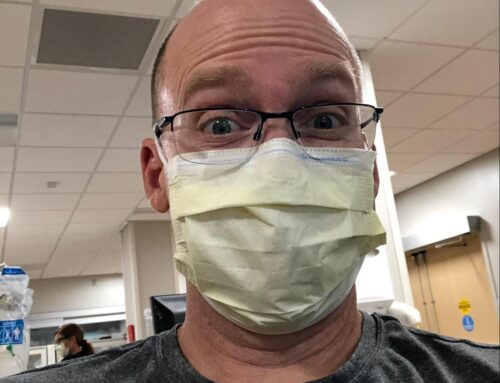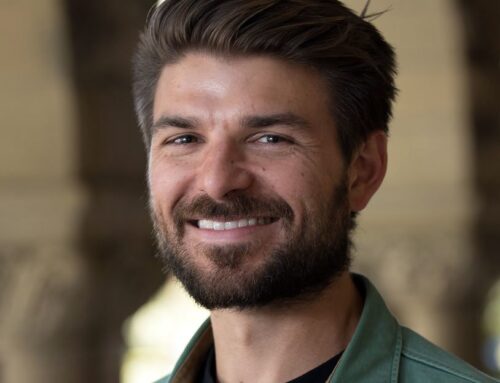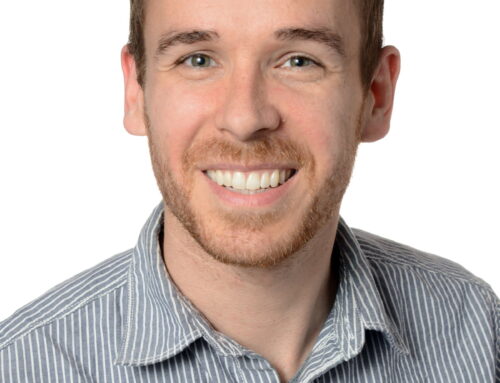Dr. Carl Alsup is an emergency physician and ultrasound fellow at Thomas Jefferson University. His loves for the outdoors keeps him active and fit. Despite being busy with academic commitments, Dr. Alsup maximizes his wellness by incorporating it into his daily routine. His attitude and strategies on maintaining mental wellness are refreshing, and are definitely worth checking out. Here is how he stays healthy in EM!
- Name: Carl Alsup, MD

- Location: Philadelphia, PA
- Current job(s): Ultrasound fellow/clinical faculty, Thomas Jefferson University
- One word that describes how you stay healthy: Balance
- Primary behavior/activity for destressing: Exercise
What are the top 3 ways you keep healthy?
Rock climbing, running, and time with my wife and dog.
What’s your ideal workout?
Well, ideally, I would wake up at dawn, hike miles to a pristine lake, set up camp, have a great meal, wake up the next morning and climb some forbidding peak, then hike back down and jump in said lake. However, that’s a little cumbersome, so usually I run to the climbing gym, and that way I get in two forms of exercise at once. I also bike to work daily and run to or from work when I’m training for races.
Do you track your fitness? How?
I have used multiple different trackers, from the iphone in place tracker (under “health” icon), to Fitbit, to GPS. Currently I don’t keep track of my climbing although I get a little nutty if I don’t get out enough. I converted from Nike Plus to Strava for tracking my running. I find it more interactive and I’m able to train with friends that live in other cities for races.
How do you prepare for a night shift? How do you recover from one?
Ideally for the first night shift I would sleep in, get some work done that day, eat something moderately big, nap, then wake up, exercise, and go in.
In reality I treat my first night shift as a call night, and try to either sleep in or get a nap in beforehand. Subsequent nights I try to go to sleep immediately when I get home, and sleep in a darkened and quiet environment. The first night is the most important for setting my schedule.
How do you avoid getting “hangry” (angry due to hunger) on shift?
I’m a huge grazer. I eat a PB&J sandwich almost every day at work. I also have an apple, orange, or grapes. Every shift I have a big bag of trail mix or nuts that I eat in small portions during the shift. I find that big meals slow me down and take me off my game. If I bring in a meal I try to eat it in two portions. Realizing early that you are getting “hangry” is really important. Whenever I’m frustrated I run through the HALT mnemonic (Hungry, Angry, Lonely, Tired) and try to at least identify if not fix the source.
How do you ensure you are mentally in check?
My wife and dog keep that in order. No matter how many close calls or bad calls or bad interactions I’ve had at a shift, my dog doesn’t care; he just wants me to throw the Frisbee.
I think it’s important to have perspective when it comes to our job. Our profession is full of close encounters with life and death. However, our jobs are not our entire lives. My wife helps keep me grounded in things/life outside of work. It helps me realize that other people have important issues, trials and tribulations, and office politics and family relations may be another’s life and death. EM is full of moments that require us to be “totally on point”, so it’s important to have some “totally off” moments to counter-balance and ensure wellness in EM.
What are the biggest challenges you face in maintaining a longstanding career in EM? How do you address these challenges?
I think the biggest challenges are burn out from systemic factors. Our medical records, sepsis charting, fear of litigation, and all that extraneous stuff take us away from what we all went in to this for — to be with and help patients. I frame my interactions about tests with patients in their interest. I bring the ultrasound into the room and perform the workup while listening to the patients. I try to find something special in all my patients. I try to really listen to what they say (and what the nurses say, and what the family members say). I try to picture the patient as a family member and find a story for them to tell about their lives. I try to frame my interactions with consultants in the best interest of the patient, not in my differences with them.
I have a pressure relief valve (aka know my limits). I try to do the right thing by my patients but sometimes doing the right thing means saving my energy for the next fight. I have certain things I will absolutely never cave on, and certain things I will but only after a threshold is reached. When stuff in the department is really crazy, I realize I have limits and try to focus only on the very most important things.
After shift libations or any kind of hang outs, especially with staff to debrief and vent, are also an essential part of the mix.
When I have a really demoralizing shift, I go back and read my application to medical school. Hopeful and un-jaded Carl had a lot of important things to say, and I strive to get back to why I went into this in the first place.
Best advice you have received for maintaining health?
“Find balance, but realize that balance is personal.”
– Dr. Deborah Diercks
“Be nice.”
– Dr Joel Gernsheimer
Who would you love for us to track down to answer these questions?
Ian Julie
Mike Stone
Jimmy Willis




